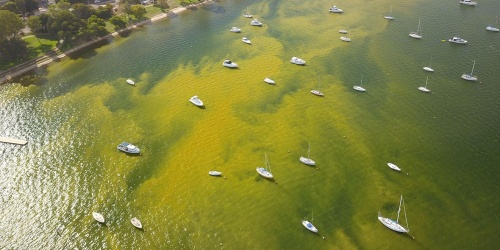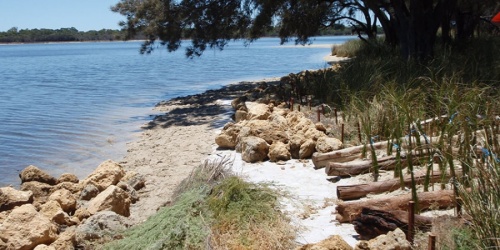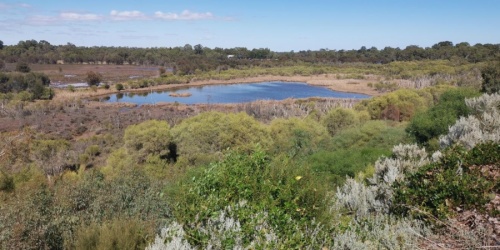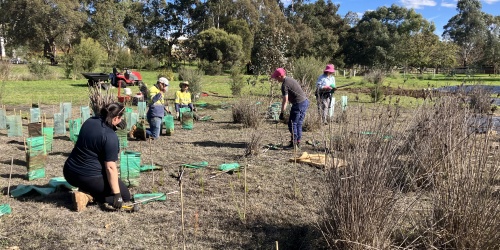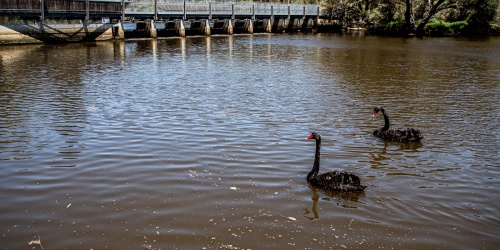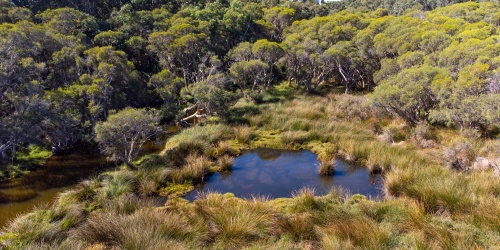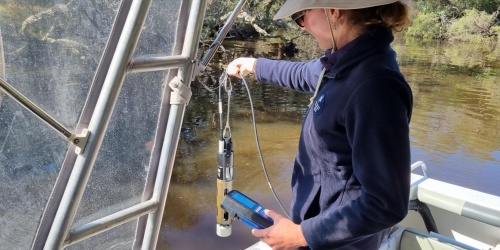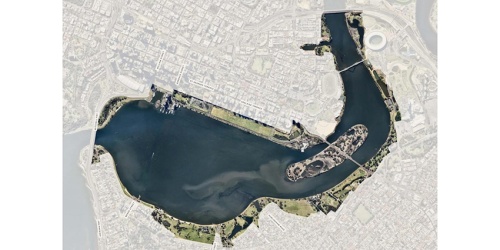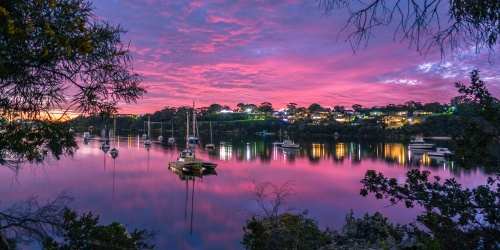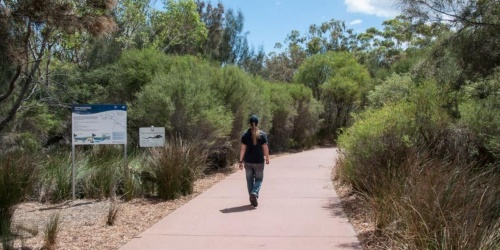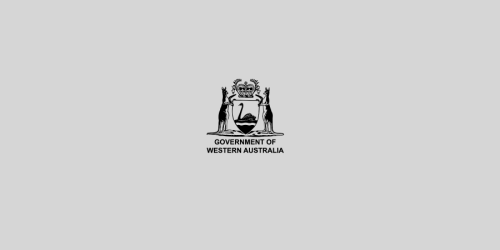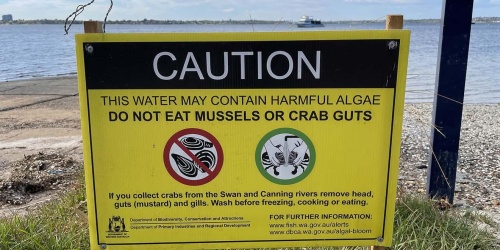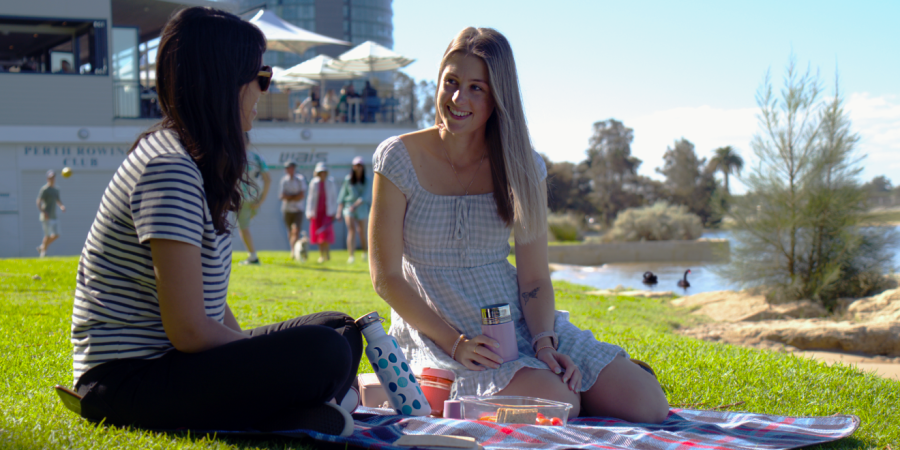
Enjoying a picnic at the Riverpark. Photo – Zoe Beeson/DBCA
The Plastic Free Riverpark program works with riverfront food and beverage businesses, sporting groups and local governments to reduce single-use plastic packaging in and around the Swan and Canning rivers.
In its first three years, the program has supported more than 50 venues and 17 events to reduce 3.2 million single-use plastic items from their organisations and supply chains with more than $100,000 in grant funding.
The Swan Canning Riverpark is socially, culturally and economically significant to the people of Perth. It is also home to a diverse range of flora and fauna, including more than 80 bird species, 200 recorded species of fish, and 20–25 Indo-Pacific bottlenose dolphins.
Plastic pollution has the potential to pose a major risk to the Swan Canning Riverpark. Wildlife can ingest or become entangled in plastic debris. Plastics washing up on foreshores can affect root growth of flora and visitor amenity. Remaining debris can impact tourism, block drainage infrastructure, and break up into harmful microplastics.
The Plastic Free Riverpark program supports Western Australia’s Plan for Plastics legislation which has introduced regulations to ban selected single-use plastic items. To find out what single-use items are still allowed in Western Australia, check out the Ban Solution Finder | Alternatives to Single-Use Plastics in Australia
Change takes time but small actions from Perth’s businesses, local governments, residents, and recreational user groups can make big inroads towards a healthier Riverpark for all.
Reducing single-use plastic, and other single-use packaging from riverfront businesses and venues
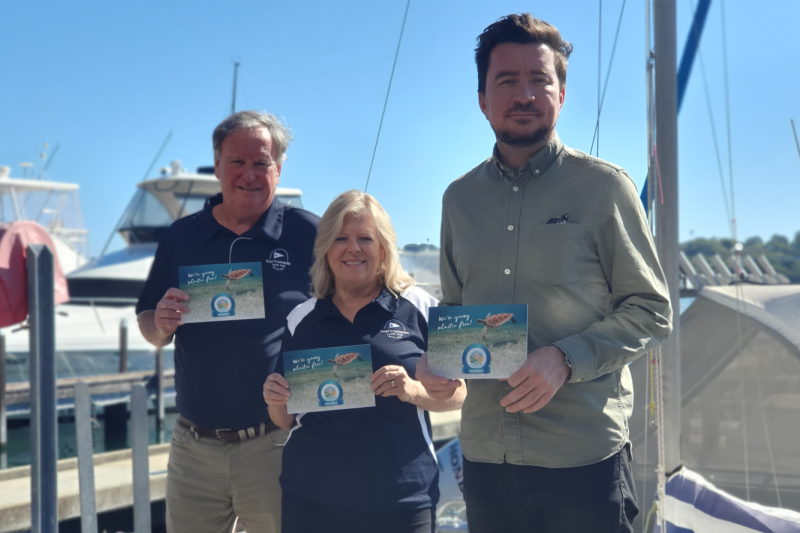
Riverfront cafes, restaurants, pubs, yacht clubs and social cruise vessels operating within 2kms of the shoreline can access small grants of up to $1,000 along with specialist advice to transition away from single-use packaging in venues and organisations.
The Plastic Free Riverpark grant funding assists businesses to adopt reusable alternatives to single-use packaging and can support projects including purchasing reusable serveware, water refill stations, or running a behaviour change initiative.
Grant applications are currently closed.
The Plastic Free Riverpark program has already assisted over 50 venues to remove 3 million single-use plastic items from their organisations.
Supporting reusable friendly, single-use free community events
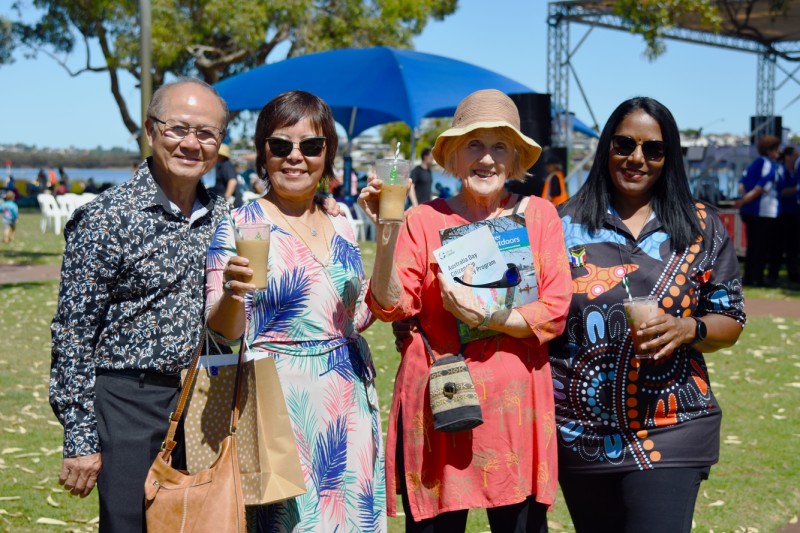
The Plastic Free Riverpark program supports riverfront local governments and event organisers to eliminate single-use products at foreshore and community events. Working with vendors to source reusable alternatives to packaging, implementing free water refill stations and clearly marking waste stations can help to significantly reduce litter from these important cultural and sporting gatherings ending up in our waterways.
Grant applications are currently closed.
The Plastic Free Riverpark program has already assisted foreshore events to provide 67,713 reusable serveware alternatives to single-use plastic items as part of their event programs.
Measuring plastics in the Riverpark
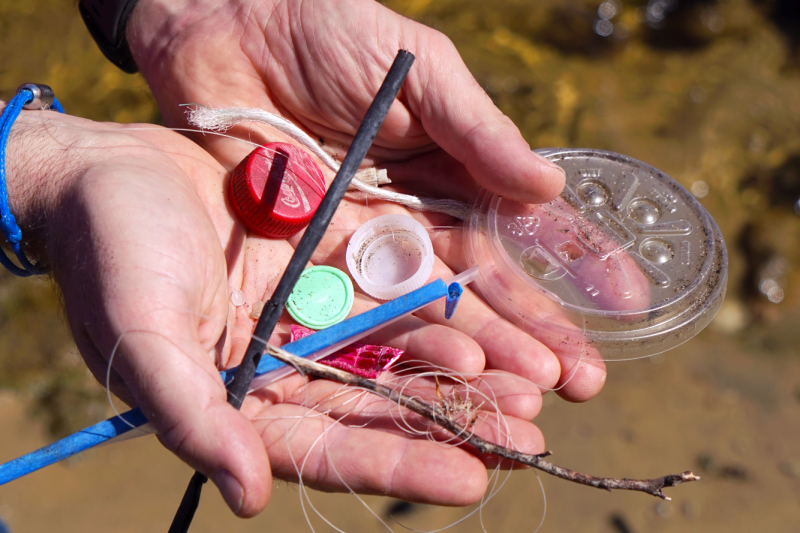
In 2021, an assessment of 38 shoreline sites across the Swan Canning Riverpark revealed plastic pollution is prevalent in the system. This work was led by DBCA’s Rivers and Estuaries Science Program (RES), in partnership with the Department of Water and Environmental Regulation (DWER).
The Plastic Free Riverpark program has worked with Curtin University and RES to measure plastic debris entering the Riverpark via priority drain locations.
Monitoring is being conducted to fill gaps in knowledge and identify priority locations where plastic intervention technologies can be installed in partnership with relevant land managers, including local governments.
These technologies could include rubbish sorting racks, gross pollutant traps and customised bins which assist local riverfront governments to collect, measure and remove plastic debris.
Get involved
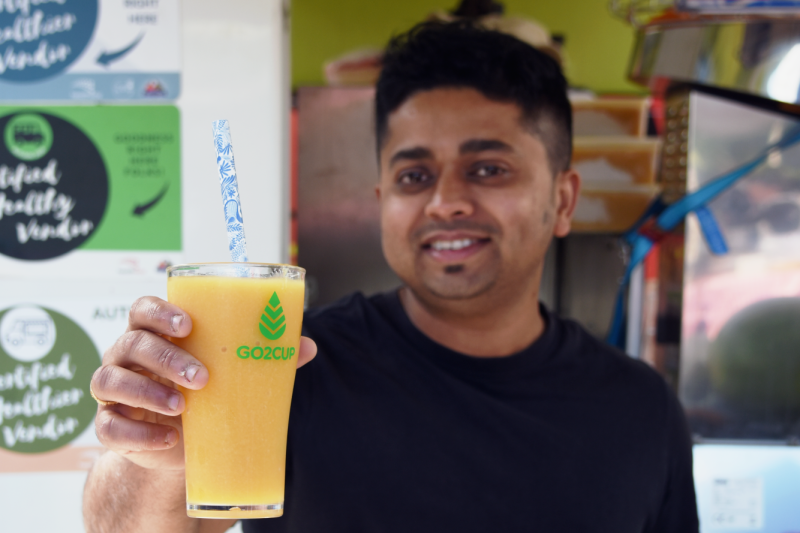
Choose to reuse for the Riverpark. If you’re planning a trip down to the foreshore, pack a reusable coffee cup, refillable water bottle, bag and container, or take some time to dine in at a venue rather than takeaway. Choosing reusable alternatives helps to reduce waste as well as encourage others to follow your lead. Avoid disposable options to help reduce single-use plastic packaging entering the Swan Canning Riverpark.
If you do see litter and it’s safe to pick it up, dispose of it in a bin with a lid or take it home to your household bin.
Are you a riverfront food and beverage business wanting to make a difference?
Contact plasticfreeriverpark@dbca.wa.gov.au for more information.
Contact us
Bree Jennings
Project Officer – Plastic Free Riverpark program
Email: plasticfreeriverpark@dbca.wa.gov.au
Phone: 9278 0985
Mobile: 0467 538 518
Downloads

